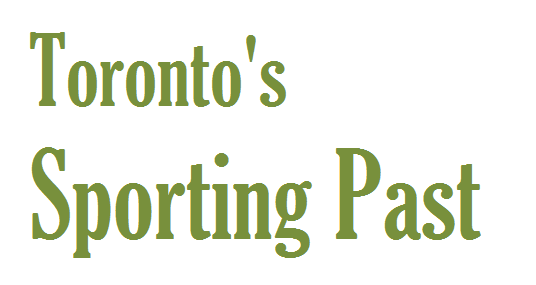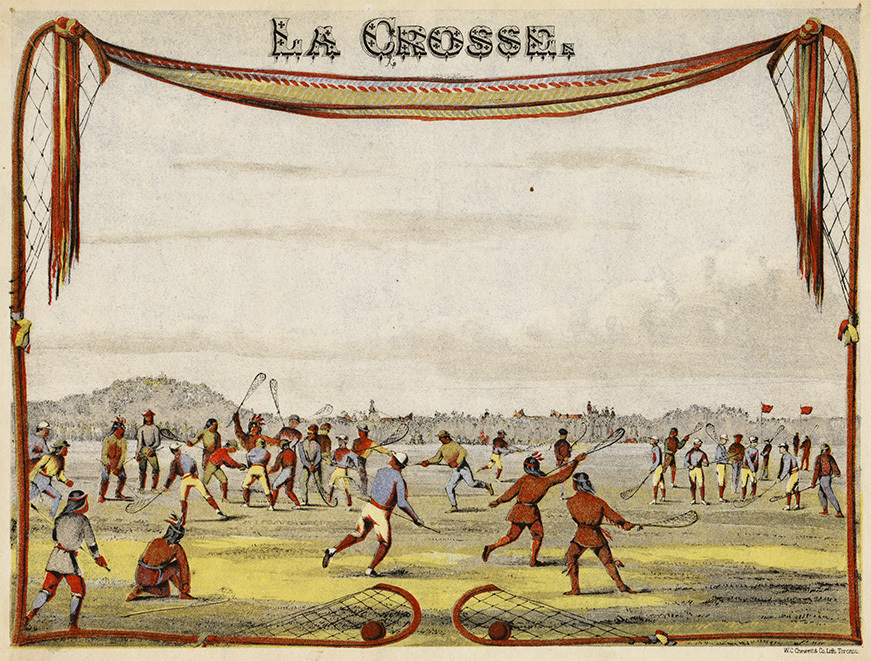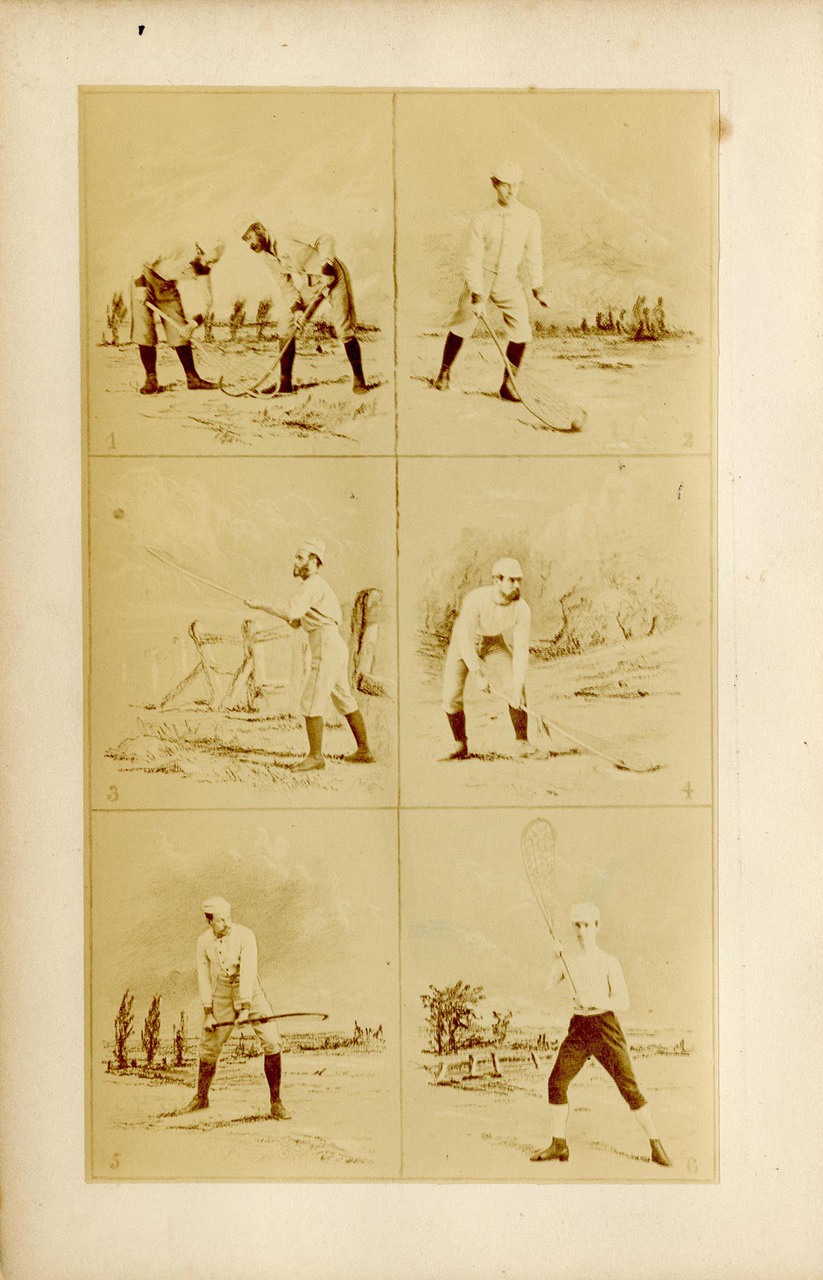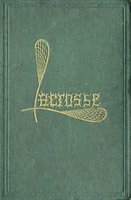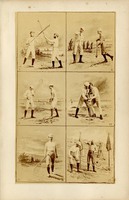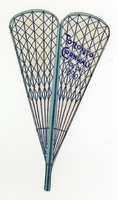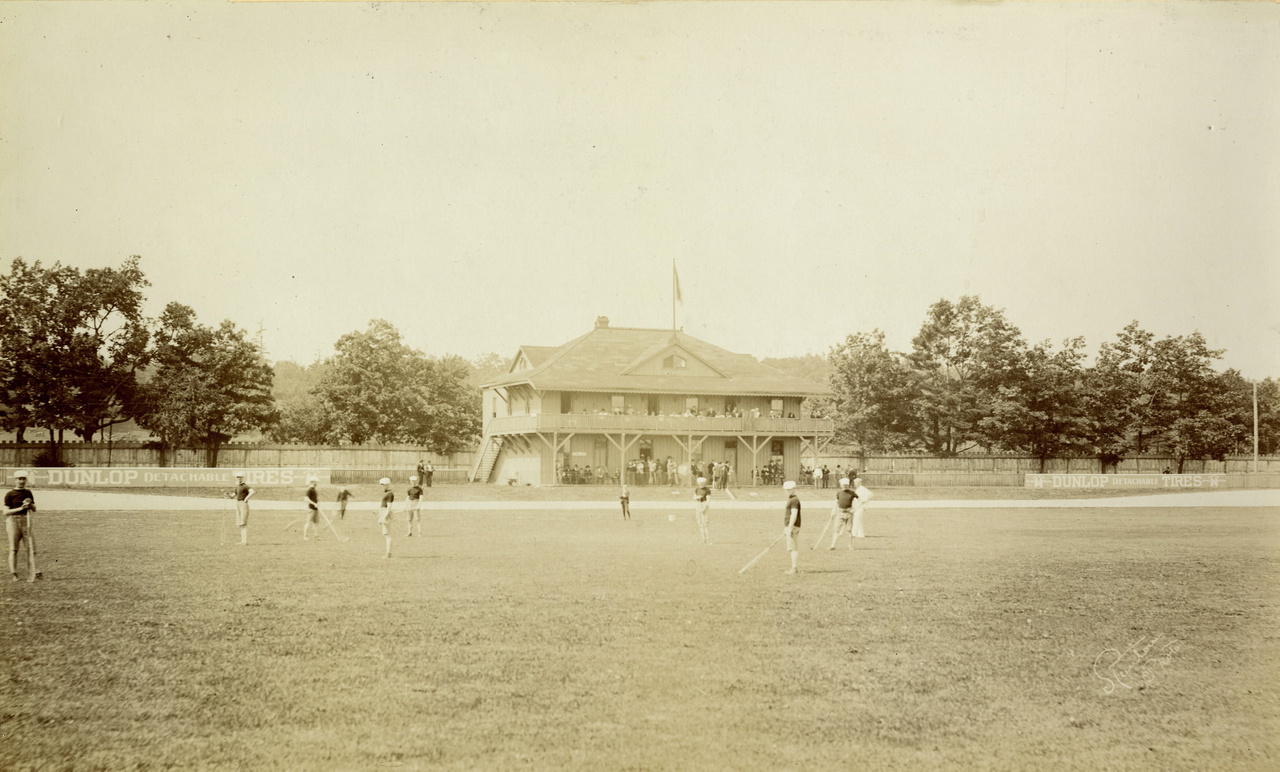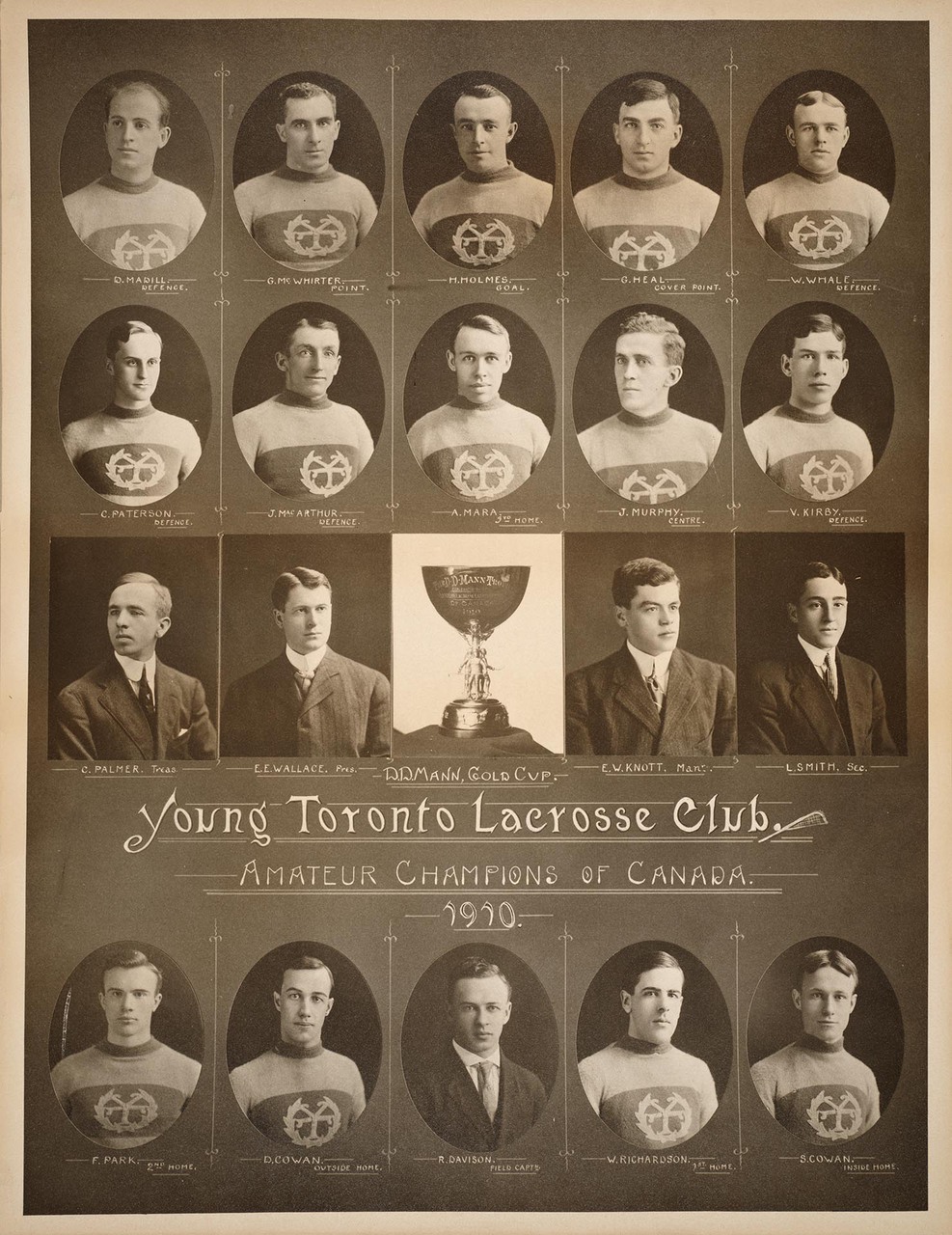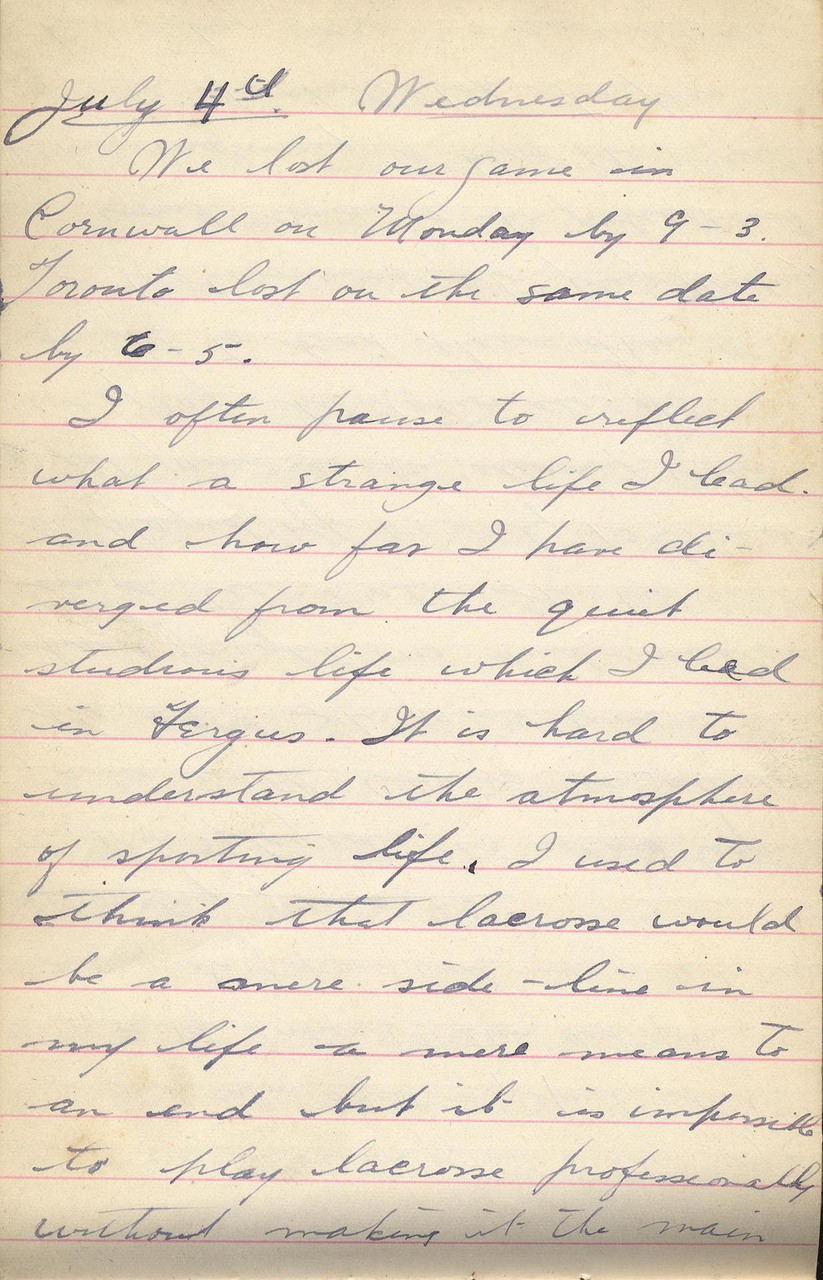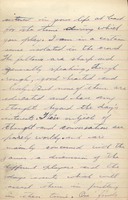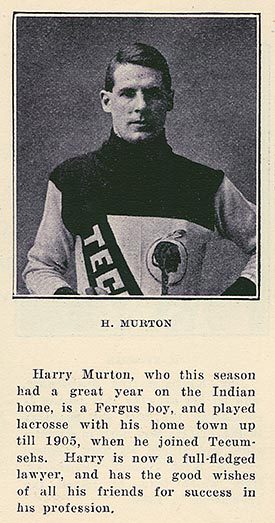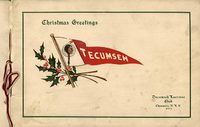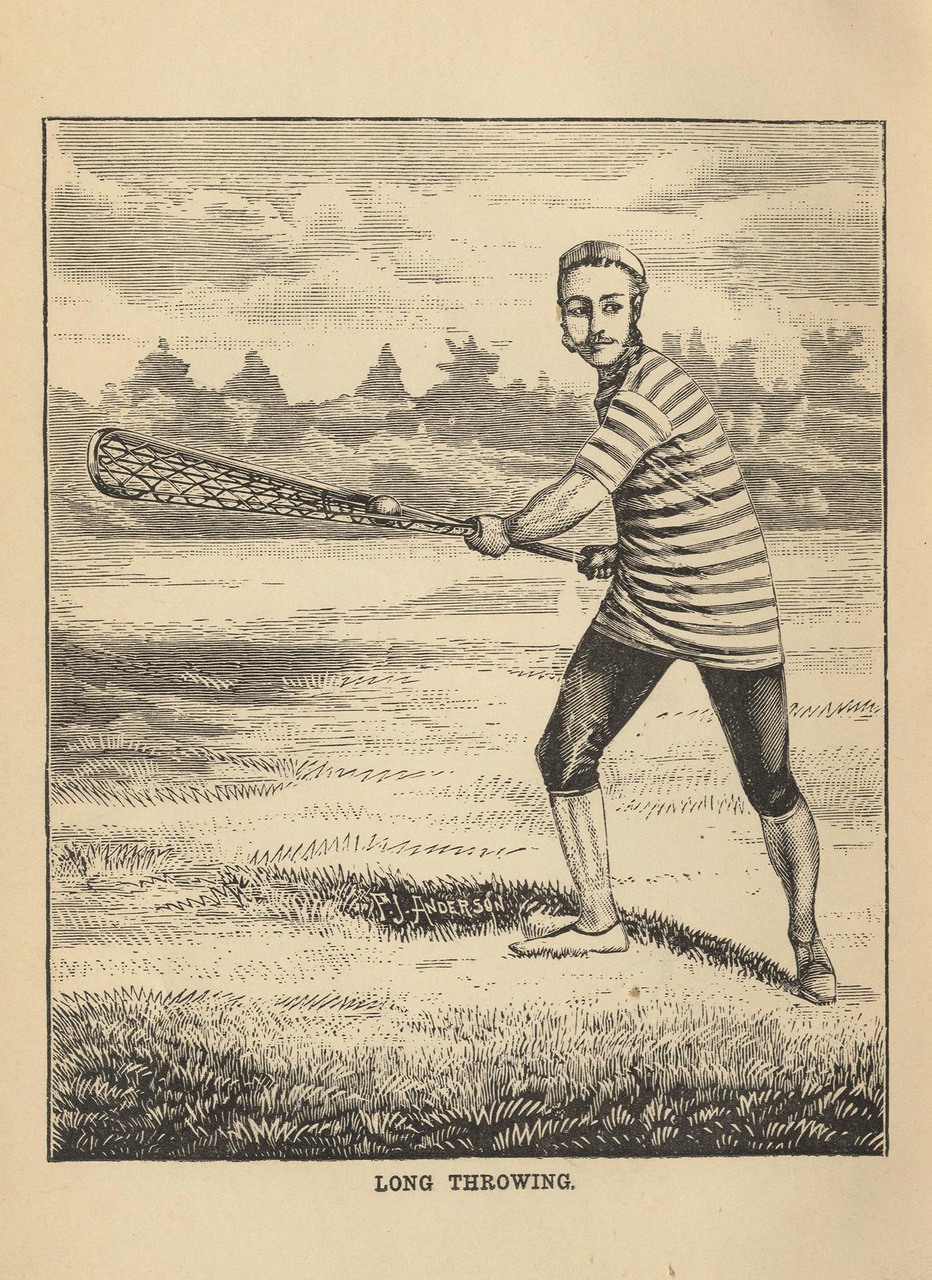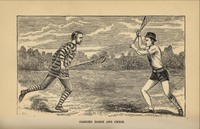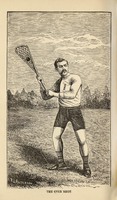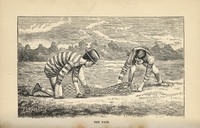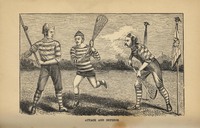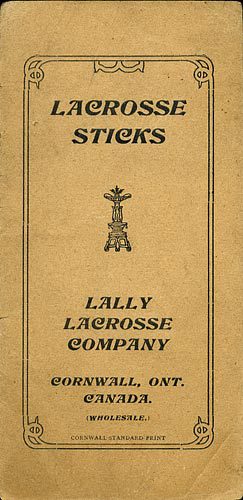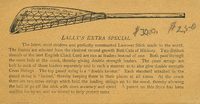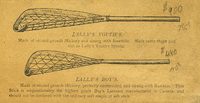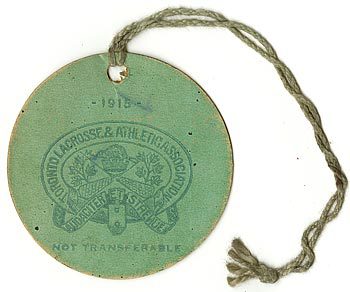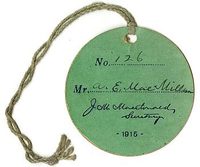Lacrosse
A quadrille was a popular dance in the 18th and 19th century, usually performed by four couples. The cover of this sheet music depicts a lacrosse game between First Nations and European players.
While the sport went by multiple Aboriginal names, Europeans in Canada named the game after the stick, calling it “la crosse” for its resemblance to a bishop’s staff.
Audio file created by Rob Rohr and released under a Creative Commons license (CC BY-NC-SA 2.5 CA) in 2015. To hear it, click on the icon, and scroll down to the Files section of the page that appears.
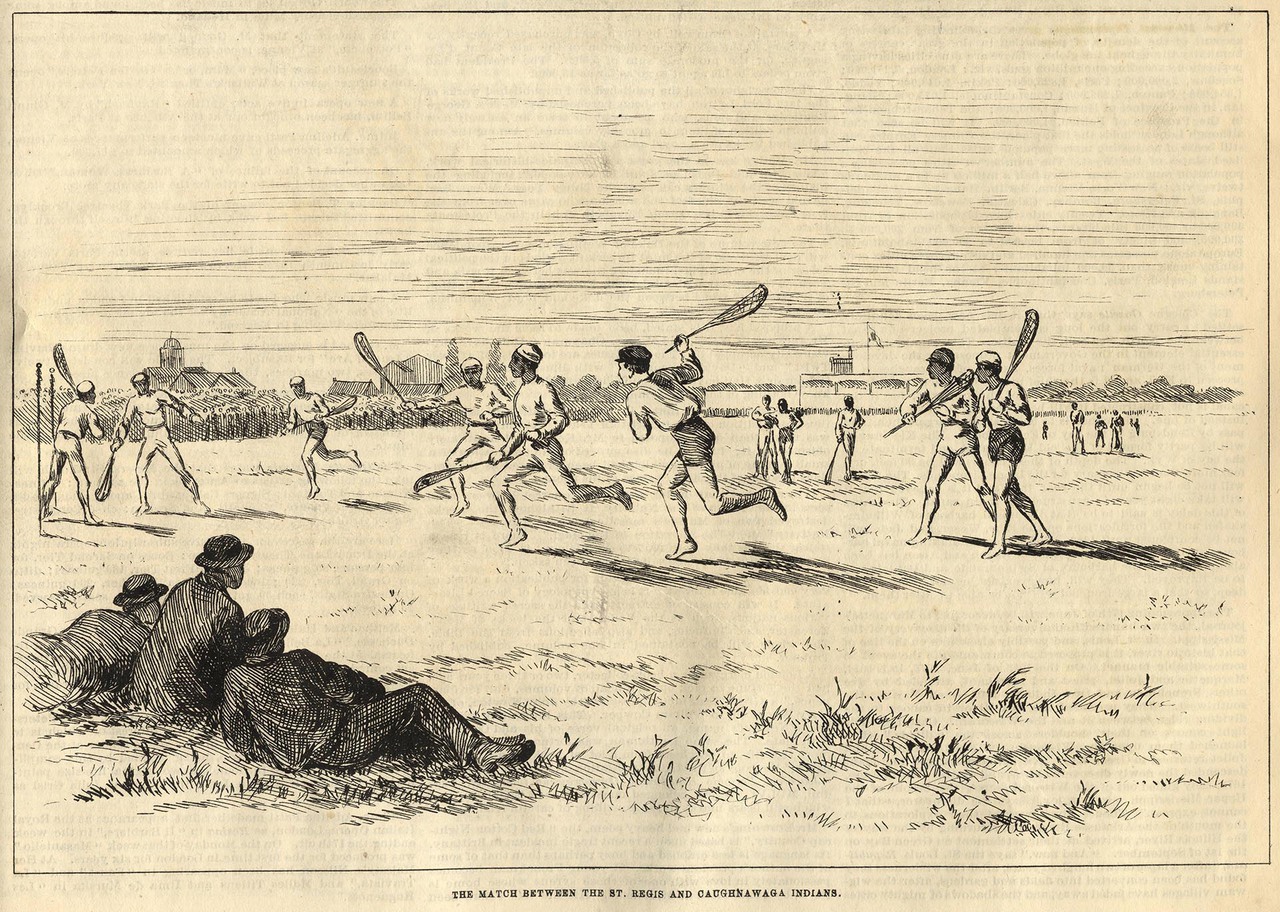
Lacrosse Match Between the Montreal Club and Caughnawaga Indians
Artist unknown
Canadian Illustrated News, Vol. I, No. 33, Page 516, 1870
In the early days of organized lacrosse in British North America, competitions were dominated by an Iroquois team from the Caughnawaga reserve near Montreal.
Thousands of spectators watched as the Caughnawaga Lacrosse Club team defeated the Montreal Lacrosse Club during Dominion Day celebrations in 1867. The Caugnawaga team later accompanied members of the Montreal Lacrosse Club on a tour of Ireland, Scotland and England in 1876.
The growth of lacrosse beyond its native roots was largely due to efforts of Dr. William George Beers, a Montreal dentist and zealous promoter of the game. Beers established the rules of modern lacrosse. Beers’ rules fixed the numbers of players at twelve and stated that the first team to score three goals would be the winner.
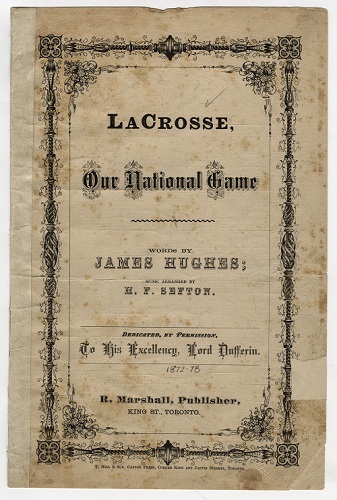
Lacrosse, Our National Game
Music by Henry Francis Sefton, ca. 1808-1882, words by James Hughes, 1846-1935
Toronto: R. Marshall, ca. 1872-1878
Sheet music
“Though baseball and cricket, the bat and the wicket, have charms, there is no game can claim boys, to yield such large measure of profit and pleasure, as Lacrosse our own National game, boys.” - Lacrosse, Our National Game
While its rising popularity did make lacrosse the unofficial national sport for many decades, there is no evidence that Parliament ever made a formal proclamation about lacrosse at the time. Lacrosse officially became Canada’s national summer sport in 1994.
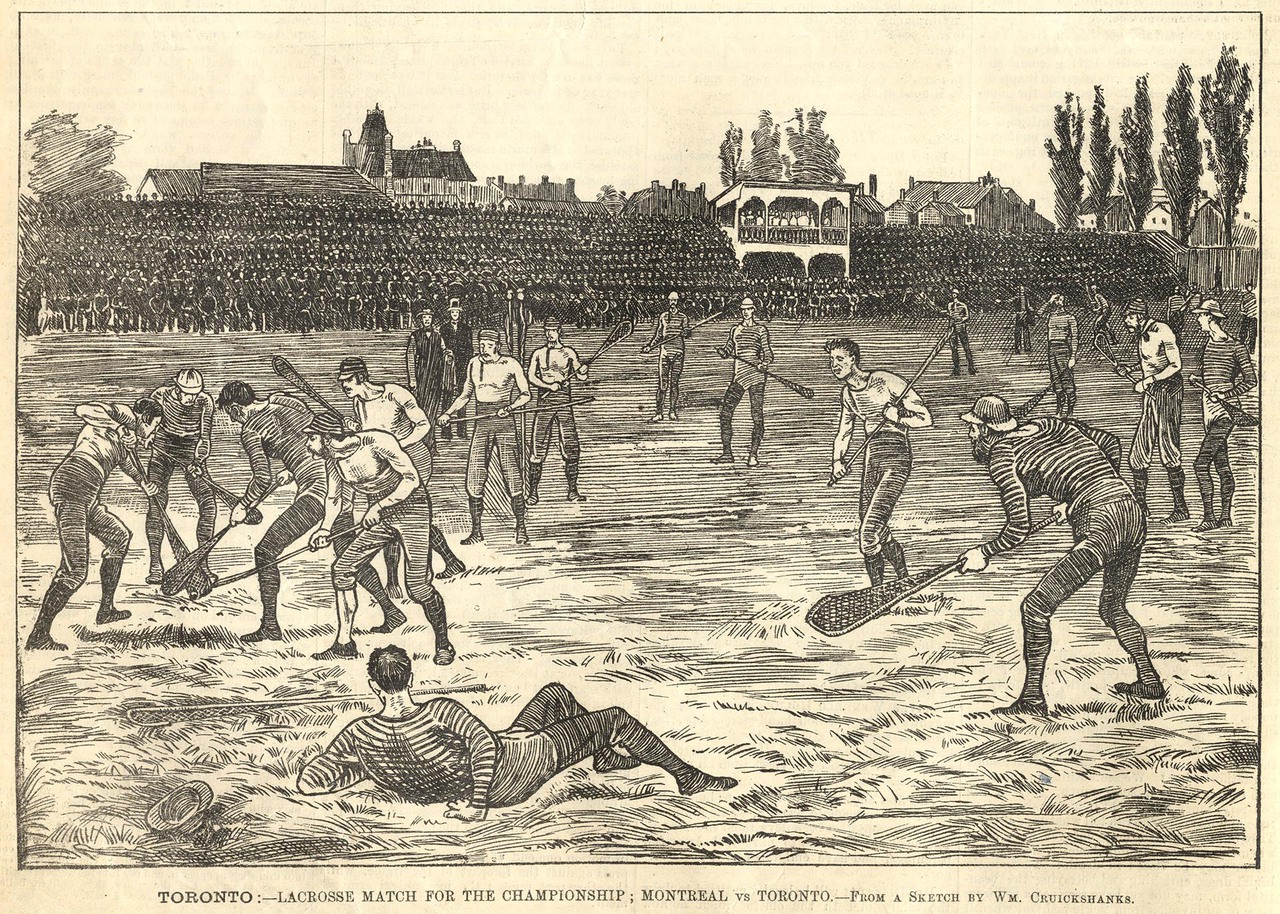
Lacrosse Match for the Championship
From a sketch by William Cruickshank, 1848-1922
Canadian Illustrated News, Vol. XIV, No. 12, Page 180, 1876
Locally, the Toronto Lacrosse Club, Tecumseh Lacrosse Club and University of Toronto’s Varsity Club were rivals to teams from Montreal and from across Ontario. This illustration from the Canadian Illustrated News depicts a championship match between Toronto and Montreal at the Toronto lacrosse grounds.
Approximately 9,000 people were in attendance at the game that day. Apparently, large sums of money exchanged hands with the odds initially favouring Montreal, but the home team was victorious.
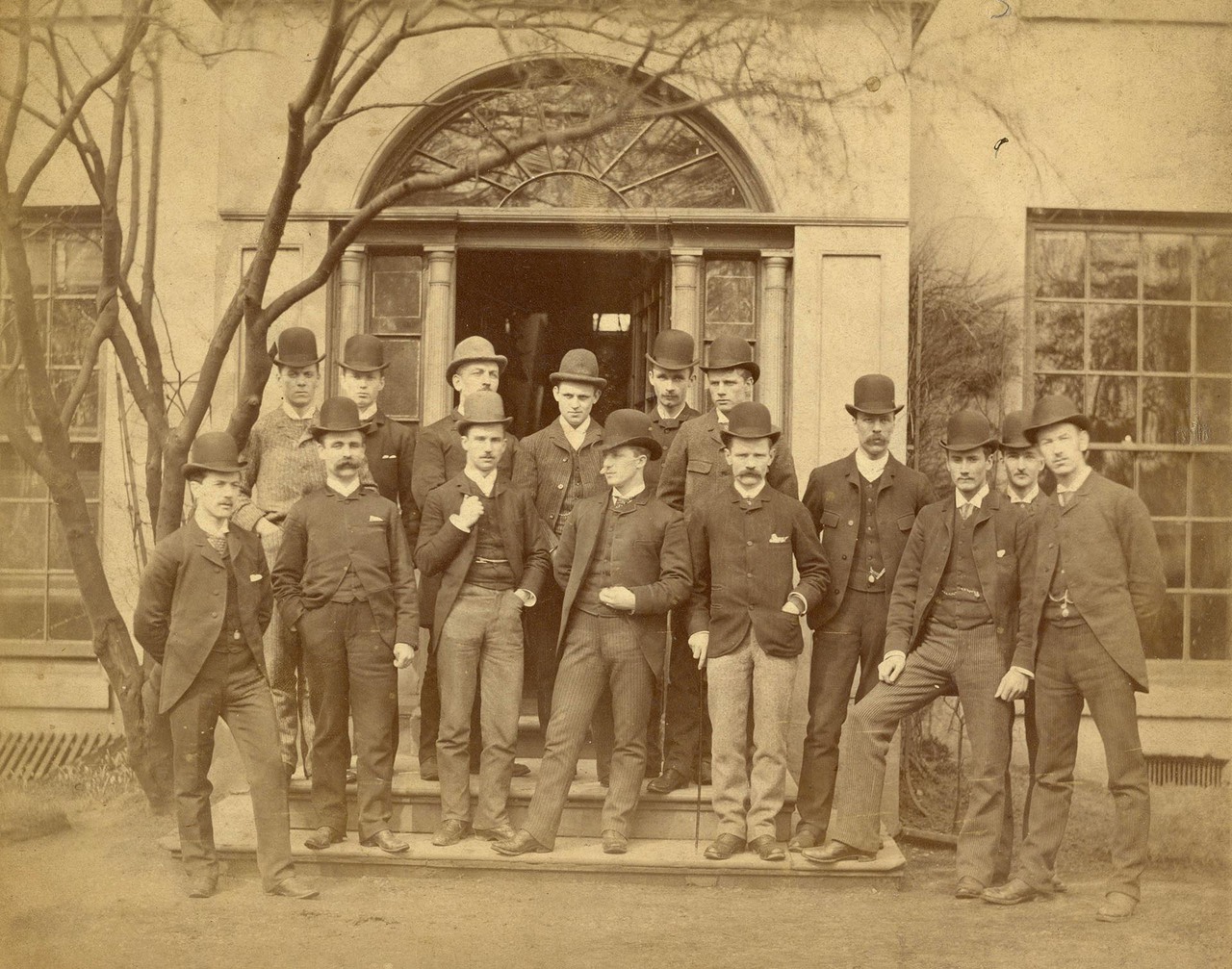
Toronto Lacrosse Club, Manchester, England
Toronto: J. Schofield, Heaton Mersey, Rose Cottage
Photograph, 1888
Gift of Mr. Robert Elgie
In 1888, the Toronto Lacrosse Club visited Manchester and London, England, and Belfast, Ireland, to play against their city and university clubs.
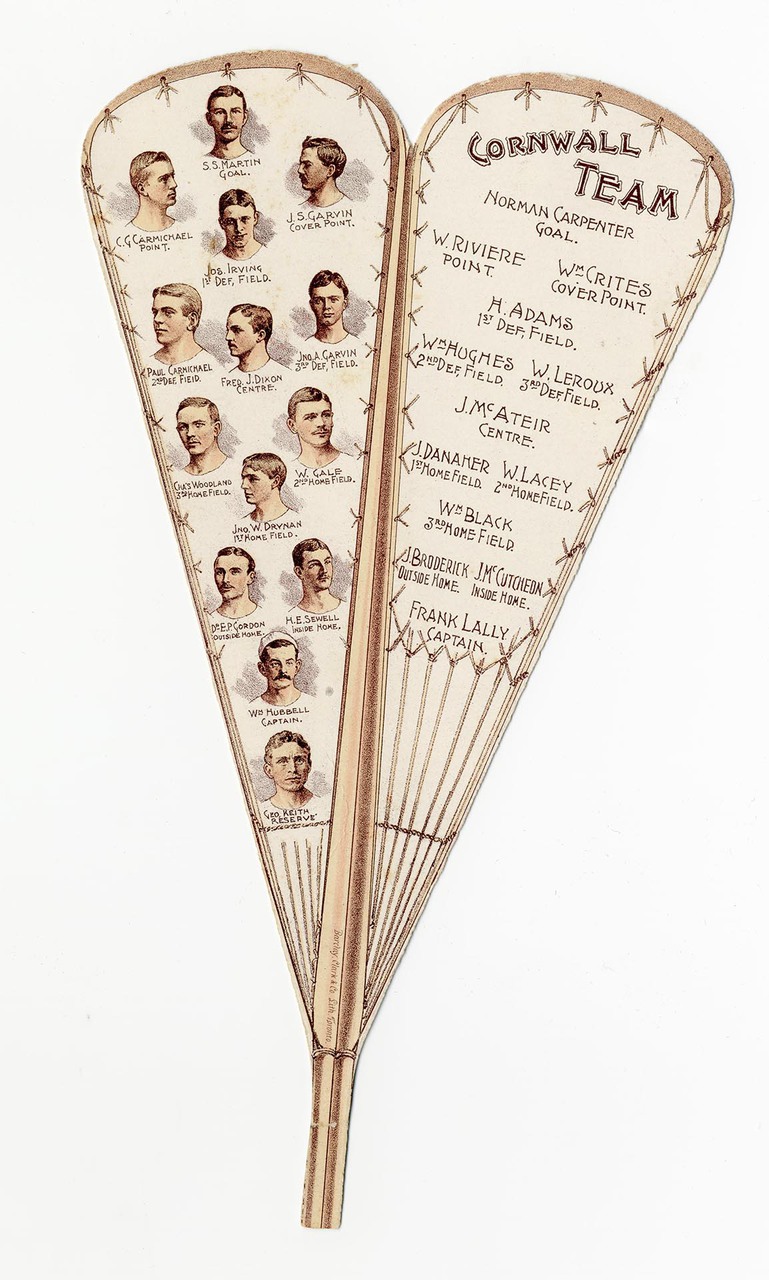
Paper fan announcing match between Toronto and Cornwall
Toronto: Toronto Lacrosse Club, August 23, 1890
Gift of Mr. Robert Elgie
The Cornwall Lacrosse Club joined the National Lacrosse Union in 1886 and went on to win multiple pennants in their first few seasons.
This paper fan was included in a scrapbook compiled by Dr. Edward Payson Gordon of newspaper clippings, photographs, and ephemera relating to the Toronto Lacrosse Club during the 1890-1891 season.
The Toronto Lacrosse Club was started by George Massey in 1867. The team first practised on the grounds of Queen’s Park and then on cricket grounds before the team was able to move to its own grounds in Rosedale Park. You can see the clubhouse in the background.
The Young Toronto Lacrosse Club (The Toronto Youngs) were the Canadian amateur lacrosse champions and winner of the first Mann Cup in 1910.
In 1910 Sir Donald Mann, chief architect of the Canadian Northern Railway, donated a gold cup to be awarded to the national amateur senior champion. At that time, the Mann Cup was appraised at $2500.00, and to this day it is one of the most valuable and beautiful trophies in all of sport.
Harry Murton was a member of the Toronto Tecumseh Lacrosse Club. In his diary in 1905-6 he reflects on his life as a lacrosse player and makes some interesting observations about his teammates. Murton was a member of Canada’s 1932 Olympic Lacrosse team and an honoured member of the Canadian Lacrosse Hall of Fame.
July 4th, Wednesday
We lost our game in Cornwall on Monday by 9-3. Toronto lost on the same date by 6-5. I often pause to reflect what a strange life I lead and how far I have diverged from the quiet studious life which I lead in Fergus. It is hard to understand the atmosphere of sporting life. I used to think that lacrosse would be a mere side-line in my life a mere means to an end but it is impossible to play lacrosse professionally without making it the main interest in your life at least for the time during which you play. I am in a certain sense isolated in the crowd. The fellows are sharp and generally speaking, though rough, good hearted and lively. But none of them are educated and have any thoughts beyond the day’s interests. Their subjects of thought and conversation are purely worldly and are mainly concerned with the games, a discussion of the different players and the day’s events which will assist them in putting in their time.
The Tecumseh Lacrosse Club were the cross town rivals of the Toronto Lacrosse Club and University of Toronto’s Varsity Club. The Toronto teams all competed against other teams throughout Ontario and from Montreal. Harry Murton is pictured.
William Kirkpatrick McNaught was a Canadian manufacturer, politician and author from Fergus, Ontario. He represented the Toronto North riding in the Ontario Legislature from 1906-1914. McNaught also served as the secretary of the National Lacrosse Association of Canada.
In Cornwall Ontario, Frank Lally was the captain of the lacrosse team. He founded the Lally Lacrosse Company in 1884. The company manufactured high quality sticks and by the turn of the century were making over 7000 sticks a year.
